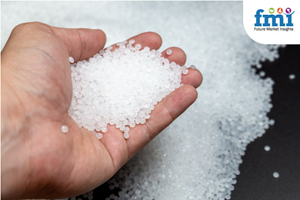Medical Market Demand Driven by Policy for Now
Wood on Plastics
How will 'Obamacare' impact the medical market for plastics processors? It's hard to see how the medical industry will not enjoy robust demand growth for years to come. On the other hand...
I am writing this column just a few days after the U.S. Supreme Court handed down its decision that essentially upholds the vast majority of the Affordable Care Act (a.k.a. the ACA or Obamacare). After listening to a voluminous amount of analysis and debate, I am comfortable saying that this piece of legislation, as well as the subsequent Supreme Court decision, will have a profound effect on the market for medical goods and services in this country. However, I am decidedly unomfortable now in trying to forecast just what that effect will be and how this legislation will ultimately impact the fundamental trends in medical markets.
In the short term, my advice is to expect business as usual. Most medical suppliers and manufacturers already have a plan in place that assumed the law would be upheld. It is, after all, the law of the land, and the industry really had no choice but to make investments to prepare for the legislation. The possibility remains that the Republicans will sweep into power after the November elections, and the whole act will be repealed in 2013. But again, it would not be prudent to bet the ranch on this outcome.
So assume that the Affordable Care Act will proceed as planned. And for many of the manufacturers in the medical industry, this will be good for business. That’s because it has the potential to bring 40 to 50 million new customers into the market. The issues pertaining to healthcare in this country are based on three things: quality, access, and cost. The Affordable Care Act primarily deals with access by mandating that everybody buy medical insurance and by giving access to those who otherwise could not afford it. So once all of the citizens that currently do not have insurance are insured, it is quite likely that the demand for medical goods will rise.
This influx of newly insured customers will reinforce the market fundamentals that were already spurring demand for medical products in America. These fundamentals include a growing population, an aging population, and rapid innovation in new medical goods and services. On the surface, it is hard to see how the medical industry will not enjoy robust demand growth for years to come.
But there is a downside to all of this, and the critics of Obamacare may ultimately be proved right. Simply put, the costs of healthcare in the U.S. are currently too big for the economy to support, and these costs are rising at a rate that is substantially higher than the rate of growth for the overall economy. Proponents of this legislation promise that it will actually lower the total cost of healthcare in this country, but there is not nearly enough credible data yet to support this claim.
It might work as they say it will, but my educated opinion is that it will not. The ACA is fraught with assumptions that may eventually prove to be flawed, and this may ultimately be its undoing. For instance, in order for this plan to work, everybody must purchase health insurance. Those who do not will have to pay a penalty on their income tax. The Supreme Court has deemed this a legal form of taxation, but the amount of the penalty is very low—only $695 at its worst. This penalty is far lower than the cost of buying a policy. So most young, healthy people may still make the choice to pay the penalty and not buy insurance. This means that only sick people will opt in, and the costs will rise dramatically, and the whole thing will eventually fail.
WHAT THIS MEANS TO YOU
•The ACA includes a new tax on some medical devices. Since it is likely that this tax will eventually be pushed on to consumers, it should not have much of an effect on medical processors and OEMs.
•The trend of medical manufacturers “reshoring” production and assembly processes from low-wage countries back to the U.S. will continue to gain momentum.
•Regardless of the ultimate outcome of the ACA, the only trend in healthcare that is sustainable over the long-term is towards “prevention” and away from “cure.
Related Content
Medical Manufacturer Innovates with Additive Manufacturing and Extrusion Technology Hubs
Spectrum Plastics Group offers customers two technology hubs — one for extrusion, the other for additive manufacturing — to help bring ground-breaking products to market faster.
Read MoreIndustrial Resin Recycling Diversifies by Looking Beyond Automotive
Recycler equips for new business in medical, housewares and carpeting.
Read MorePlastic Compounding Market to Outpace Metal & Alloy Market Growth
Study shows the plastic compounding process is being used to boost electrical properties and UV resistance while custom compounding is increasingly being used to achieve high-performance in plastic-based goods.
Read MoreWhat to Look for in High-Speed Automation for Pipette Production
Automation is a must-have for molders of pipettes. Make sure your supplier provides assurances of throughput and output, manpower utilization, floor space consumption and payback period.
Read MoreRead Next
Lead the Conversation, Change the Conversation
Coverage of single-use plastics can be both misleading and demoralizing. Here are 10 tips for changing the perception of the plastics industry at your company and in your community.
Read MoreMaking the Circular Economy a Reality
Driven by brand owner demands and new worldwide legislation, the entire supply chain is working toward the shift to circularity, with some evidence the circular economy has already begun.
Read MorePeople 4.0 – How to Get Buy-In from Your Staff for Industry 4.0 Systems
Implementing a production monitoring system as the foundation of a ‘smart factory’ is about integrating people with new technology as much as it is about integrating machines and computers. Here are tips from a company that has gone through the process.
Read More






















